Bacalhau, Castanhas, Algarve, Pastel de Nata, and Port wine are just a few examples that come to people’s minds when thinking of Portugal. But is that all?
I have asked David to tell us more about his life abroad in Porto, Portugal including challenges, language, and cultural barriers, local dishes, costs of living, and much more.
Hi David, tell us about yourself…
Hi everyone, my name is David McNeill, and I’m the founder of Expat Empire. I was born and raised in the United States, and my passion for living abroad originated from my interest in the Japanese language when I was 12 years old.
I studied abroad in Singapore in 2009, worked in Beijing for 3 months in 2013, and then moved abroad permanently in 2014. I spent two years in Tokyo, three years in Berlin, and the last two years in Porto, Portugal.

Tell me more about Expat Empire…
During my university years, I searched for any way that I could to find a job in Japan. I wanted to build a career outside of the typical English teaching route, and so I looked everywhere I could to find a mentor who could help me to make that dream a reality. Unfortunately, I never managed to find someone who could show me the way, and so I had to figure it all out mostly on my own.
Once I finally made it to Japan and achieved my dream, I wanted to find a way to pay it forward to others who had similar dreams and were in search of guidance from someone who had done it before. That motivation led me to write my first book, Passport to Working in Japan, and I released the book and launched the website in July 2018.
The business has evolved considerably since that time. Our mission is to make living abroad a more achievable dream for people around the world, and we do that through our content and consulting services. Regarding our content, we produce blog posts, podcast episodes, courses, events, and more with the goal of inspiring more people to travel, move, live, and work abroad.
We do our best to answer the hard questions about moving abroad and provide as much insight, advice, and guidance to our audience as possible.
As for our consulting services, we support people who are looking for more support to take the next steps in their journeys abroad. We offer a variety of services including:
- Coaching to answer questions, provide encourage, offer advice and more on all topics related to living and working abroad
- Destination Country Comparison to provide a side-by-side comparison of potential countries or cities for clients to move to based on their requirements and preferences
- Visa Planning to research visa options that meet clients’ needs and provide advice for their next steps
- Timeline Planning to compile all the steps clients need to take before, during, and after the move in a spreadsheet so that they can check them off as they go
- International Job Search to polish clients’ applications and help them discover the strategies that will help them to find jobs in their target countries
- Remote Work Roadmap to help clients to start location-independent businesses or find remote jobs that are aligned with their skills and interests
- Connections with our Global Partner Network to support our clients in getting the on the ground, in-person support they need in their destinations in areas such as immigration, home finding, school search, and more
If you’d like to discuss your moving abroad plans and see how we can help you to achieve them, please fill out our Consulting Contact Form to book a time for us to chat.
What was the main reason for choosing Porto/Portugal as your latest home base?
Soon after I met the woman who would eventually become my wife in 2017 in Berlin, Germany, we started thinking about where we would move next. We discussed a few countries and quickly agreed that Portugal might be a good choice.
I had good memories of the country from a previous trip I took in 2014 but she had not been yet, so we decided to visit in October 2018 for one week. We returned to Berlin confident that Portugal would be a great next place for us to move to.
Our main reasons for choosing Portugal as our latest home base are the warm people and warm weather. It felt like a big change from the colder weather and less friendly people we had encountered living in Berlin. We also loved the food and appreciated the beauty and relaxed energy of the cities and beaches.
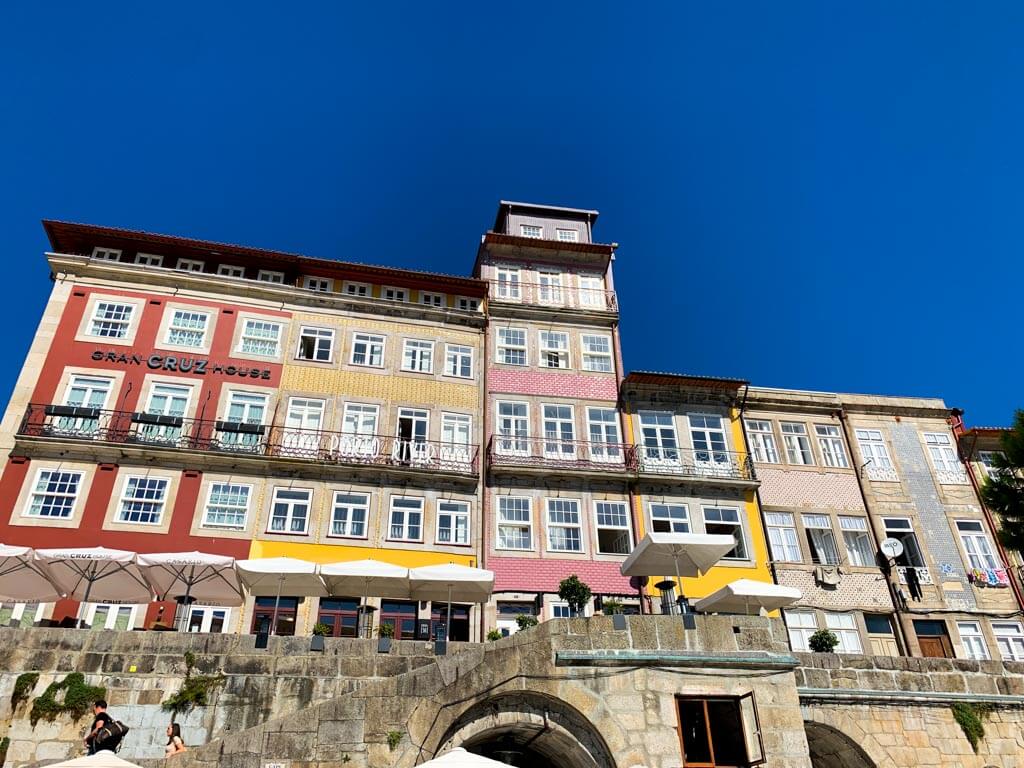
The only issue we had left to figure out was how we could make it happen. I first considered potentially working remotely in Portugal for my employer in Germany, but before I was able to pursue that idea further, I found out in April 2019 that I was going to be laid off from the company in June.
My wife was finishing up her traineeship at a German bakery in August, so it seemed like a great time for us to make a big life change if we were going to do it.
I applied for jobs all over Europe in cities such as Barcelona, Copenhagen, Tallinn, and, of course, Porto and Lisbon. In the end, I got a great job offer in Porto and so we moved here in November 2019.
Is it easy to connect with locals or are there any barriers?
In Portugal, people are generally very warm and friendly. I have found Portuguese people to be fairly easy to become friends with compared to both Japan and Germany. Another nice thing is that Portuguese people will usually switch to fluent English once they realize you aren’t fluent in Portuguese, so it’s easy to communicate with most people here.
With that said, many Portuguese people live in or near where they grew up, so many people have their close friends from childhood and families nearby, which may make it more difficult for you to break into their social circles. However, once you manage to do so, the relationships tend to be strong and long-lasting.
How about the cost of living in Porto?
The cost of living in Portugal in general is quite low overall. This is largely due to the fact that the minimum wage in the country is the lowest in Europe. You can get a great meal for 5 to 8 Euros if you look in the right spots. A coffee from the cafe on most corners will cost you 70 cents and a pastel de nata maybe 80 cents or 1 Euro.
However, the rent, especially in larger cities, has increased dramatically over the last decade, so this is something to watch out for when considering your cost of living in Portugal.
What is your favourite and least favorite part about living in Porto?
I actually live just outside of Porto in a beach town called Matosinhos. It’s connected by metro to the city, so it’s not too hard to get downtown through public transportation.
With that said, my favorite part of living in Matosinhos is being able to walk to the beach after work on most days. The Parque da Cidade, or City Park, is also nearby, so we have plenty of green areas around to enjoy as well.
I think my least favorite part of living in Porto is the fact that there aren’t as many cultural and art events here as there were in the previous cities I lived in. Because Portugal is on the Western edge of Europe, concert tours and cultural events may not make it all the way over here.
Porto is also not the capital, so sometimes I have to go to Lisbon to attend an event. That is not to say there aren’t things going on in Porto, but they may not happen as often as I would like.

What was the biggest culture shock for you?
I’m not exactly sure what my biggest culture shock has been, but one thing that I have had to adjust to is how much Portuguese people love to talk. They are generally quite open and friendly, but that also means they can be quite talkative, which was a big change for me coming from Germany and Japan where people tend to keep more to themselves.
I have found Portuguese people in general to be a bit less boisterous than their Spanish neighbors, but it’s still an important part of the culture. Portuguese people even greet other people riding on the elevator, and in my first weeks, I was chided by someone for not greeting them when I got on the elevator.
I’ve had to adjust my communication style since moving here, but I’m glad everyone is so kind and considerate of others.
What is the most annoying stereotype about Portuguese that you found out to be true?
People talk about challenges of dealing with the local bureaucracy in Southern Europe, and now that I live in Portugal, I can say that I can understand because I have had to experience the difficulties firsthand.
It took us months to get our residence permits and another six months for me to complete the processes to open my business here. While they are working to digitize processes and make things easier, it’s definitely still not as efficient in Portugal as in some other countries in Northern Europe.
What is your favorite local food?
Portugal is famous for its francesinha, and now that I live here, I know why. It’s a big sandwich made of several different kinds of meat, covered in melted cheese, and then doused in a thick tomato sauce. You can also choose whether or not to add a fried egg on top of the sandwich.
People in Portugal usually have their own lists of their favorite francesinha joints, and the difference between places usually comes down to how watery or thick the sauce is as well as its taste. Because francesinhas are so heavy on your stomach, I only feel like eating one every month or two, but when I’m in the mood for it, nothing else can satisfy me.
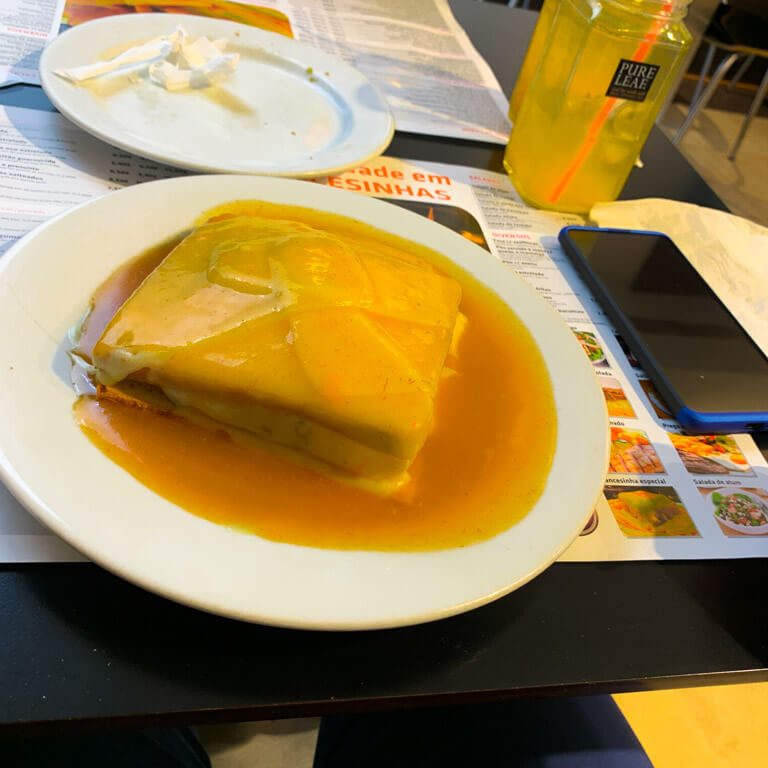
What was the biggest challenge for you once you moved to Portugal?
We experienced some very challenging immigration issues that were specific to the time that we moved to Portugal as well as our unique situation.
We moved to Porto in November 2019 but my immigration office appointment was set for January 2021 with my wife’s following in March. Before my appointment, I had intended to get the EU Blue Card in Portugal as I had in Germany to give me a short time to qualify for permanent residence, but I was forced to make the difficult decision to give up the three years I had accumulated in Germany on the EU Blue Card and start over with a normal work visa instead.
Then, my wife’s appointment in March was delayed due to the COVID-19 pandemic, and we had to make a last-minute trip to another city to attend her rescheduled appointment in May.
Can you share any funny/typical tradition from Portugal?
One thing that we find interesting here is how much Portuguese people love bacalhau, which is dried and salted codfish. For some reason, this has become the main ingredient in many Portuguese dishes. It is said that you can order a different bacalhau dish every single day of the year. There are even special bacalhau dishes reserved for specific holidays such as Christmas Eve.
Personally, I would argue that most of these dishes are fairly similar – perhaps the potatoes are cooked a different way than in another dish, for example – but I respect the locals’ creativity and love for this unique ingredient in Portuguese cooking.
What is/are a fun fact(s) about Portugal most people don’t know about or expect?
Even though Portugal is a relatively small country, you can find different Portuguese accents, cuisine, favorite beers, and more in different regions of the country. There are some rivalries in the country, including when it comes to beer.
Most people living in the north of Portugal prefer Super Bock while most people in the south prefer Sagres. You’ll have to try them both and pick your favorite so that you’ll have your answer ready when people ask which team you’re on!
What would be your top advice for people who are thinking to move to Portugal?
While there are many jobs available in Portugal, especially for people in technical fields, the salaries are generally not very high. Taxes are also quite high, but thankfully there are programs such as the Non-Habitual Resident tax status that can reduce your taxes in Portugal as a foreigner for a 10-year period.
Therefore, I would advise people who want to work here to bargain hard for a good salary relative to the local market and research deeply into what it will actually cost for you to live the life you want in Portugal.
Alternatively, you can try to take advantage of some of the unique immigration opportunities available in Portugal that allow you to qualify for residence based on income streams from outside the country, such as through remote work salaries, income from foreign businesses, and pension and social security income.
What is your favourite thing to do in Porto that people should do if they visit?
It’s the typical site for tourists to visit in Porto, but I would strongly recommend visiting the Douro River and the famous Luís I bridge in the downtown area.
I’ve already lived here for 2 years, but I still find the view over the river to be breathtaking. Definitely go there and soak in the sun, the views, and the tasty Port wine at one of the local wineries or bars along the river.
What is the biggest difference between your home country USA and Portugal?
Things definitely move at a slower pace here than in the US. People aren’t as focused on their careers and have a better work-life balance. As in most countries in Europe, people take their vacations from work and enjoy more benefits than most employees in the United States.
While that is generally a positive, it’s also important to consider that because things tend to proceed at a slower pace here, it may take longer than you’d like to catch a bus, get a government document, or get served at a restaurant. When the culture is slow paced, everything slows down, for better or worse.
This aspect of the culture may take some getting used to if you’re used to a fast-paced culture like you can find in many parts of the United States.
What do you miss most from home?
Besides friends and family, I miss many American foods. As someone who spent many years living in California and Texas, I definitely miss Texmex and California-style burritos. Texan-style BBQ, especially brisket, is also in short supply.
In Porto, there are restaurants selling food from all over the world, but it can be hard at times to find exactly what you’re craving. Sometimes we go to Lisbon or a nearby town on the weekends to eat a cuisine that we can’t find here.
There are even some types of food we love like Ethiopian food that we haven’t been able to find in Portugal so far, but we will keep searching for them!
The south of Portugal is also beautiful and worth exploring. Check out this 3 day itinerary in the Algarve.
You can connect with David on Instagram if you want to know more about emigrating and living in Portugal.
You can find more expat stories on my blog.



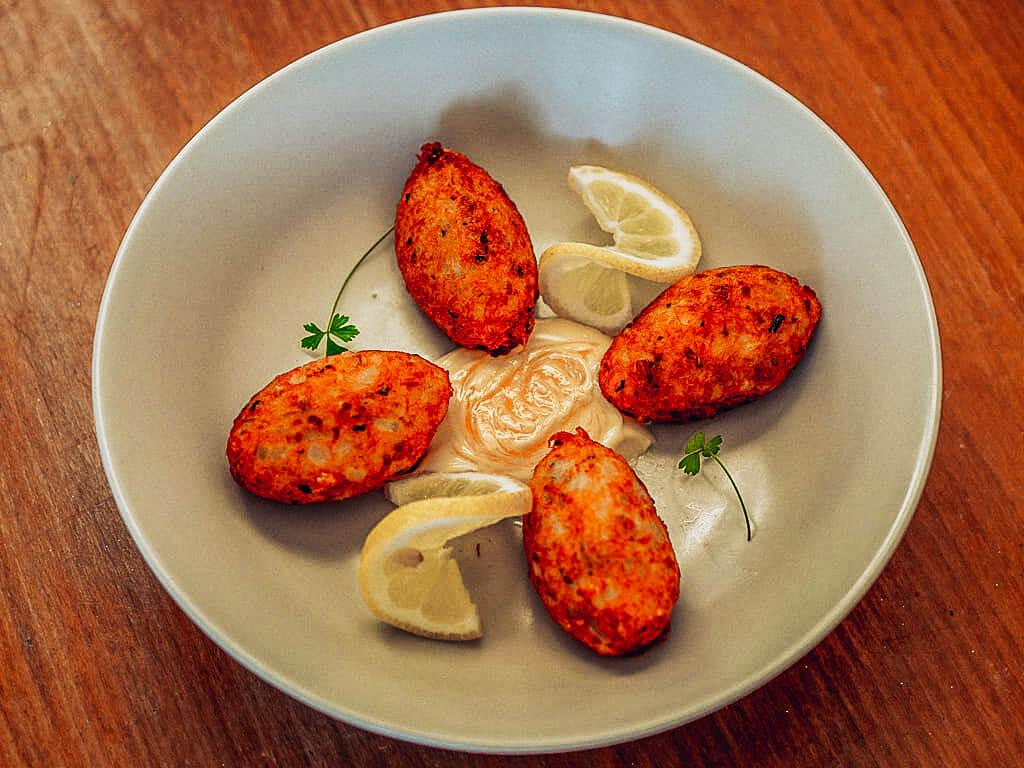
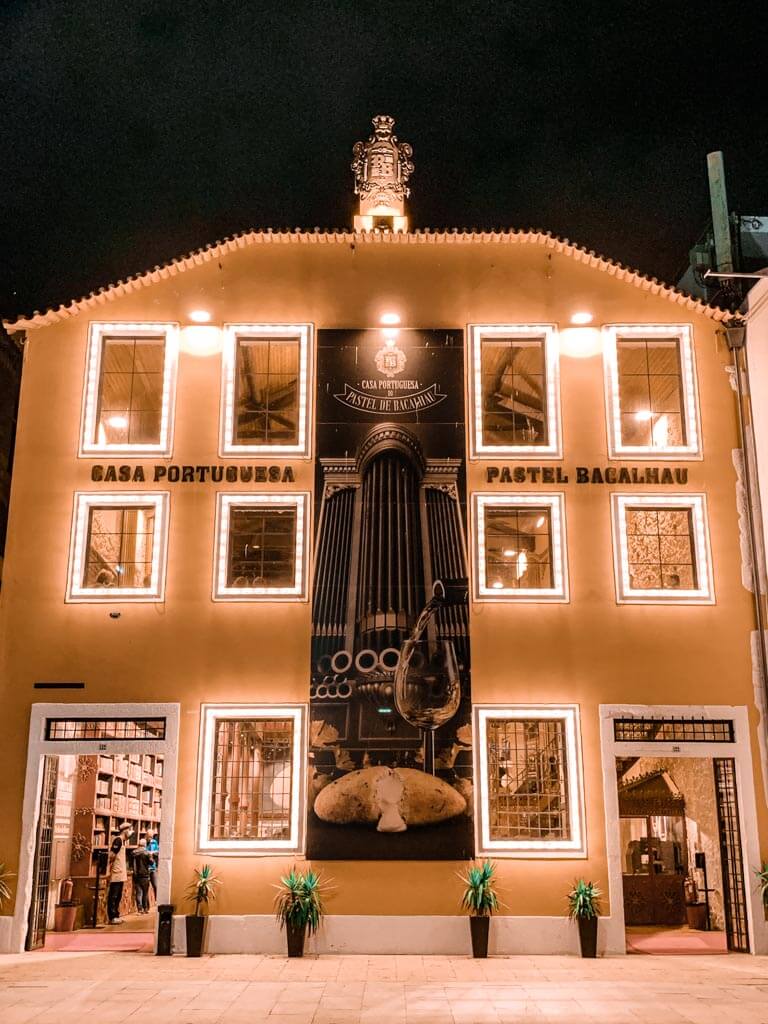
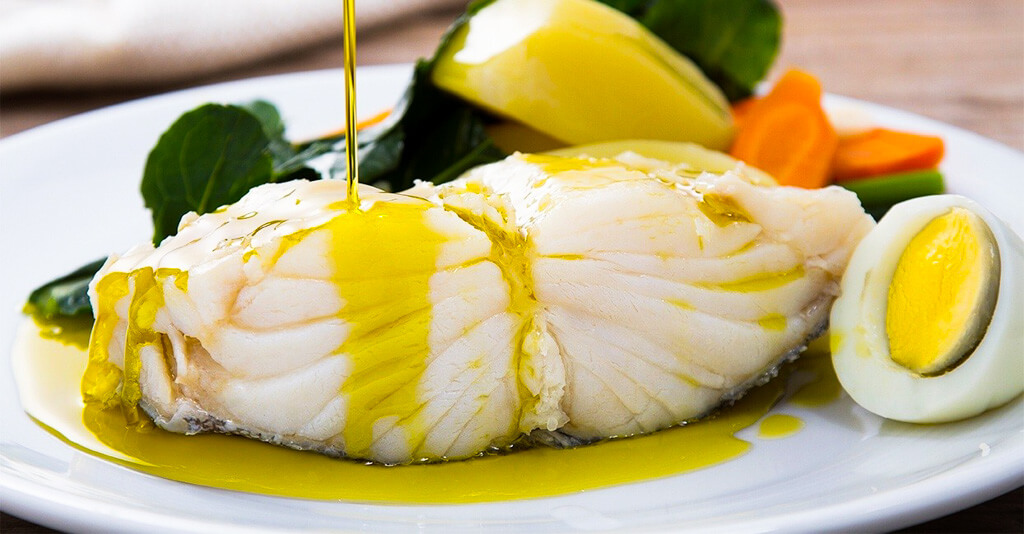
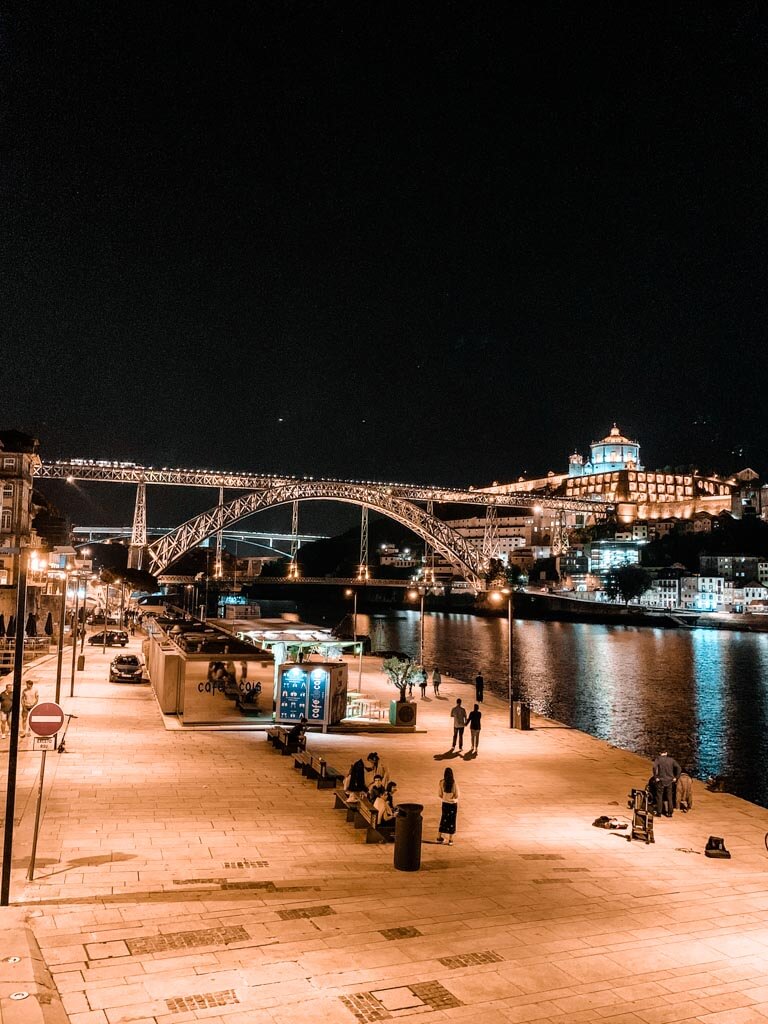
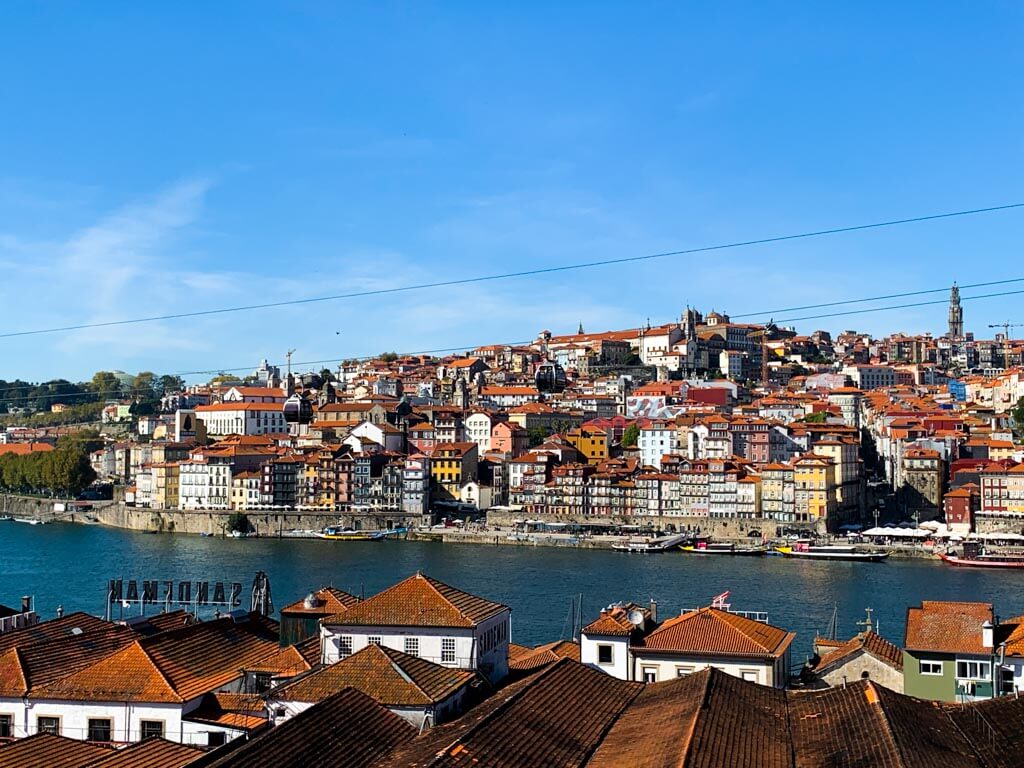
Great content! Keep up the good work!